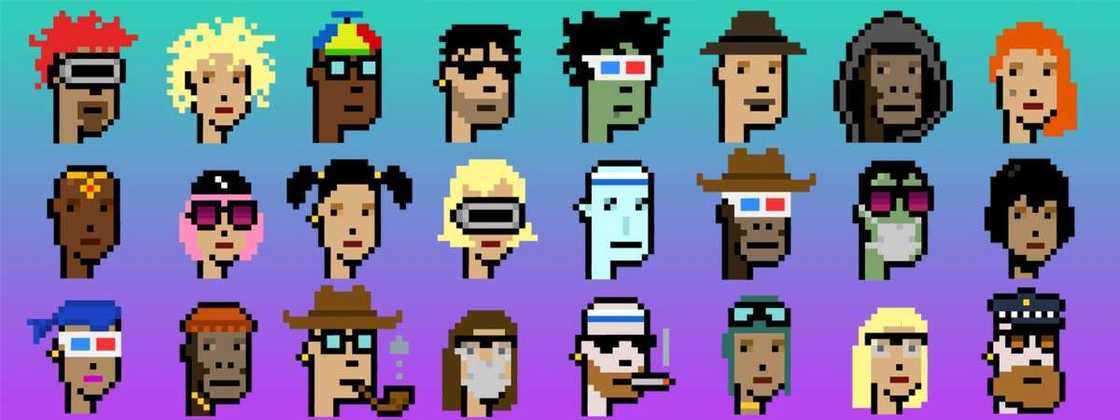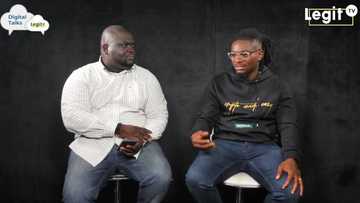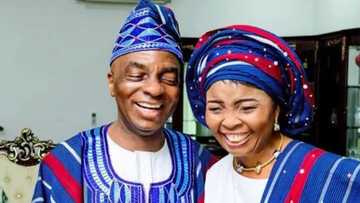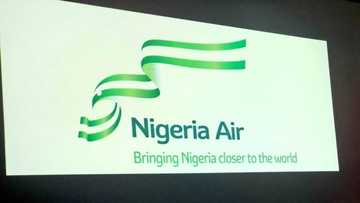Olayimika Oyebanji: A Lawyer Turned NFT Expert, Writing, Investing his Way to Riches in the New Crypto World
At the start of 2021, only a niche group of crypto enthusiasts knew what non-fungible tokens (NFT) were. One of them is Olayimika Oyebanji, a lawyer now an expert on NFT world.
PAY ATTENTION: Click “See First” under the “Following” tab to see Legit.ng News on your Facebook News Feed!
His journey began in 2020 on a personal quest to satisfy his curiosity about emerging technology.
Today, he is not only an investor but has built a reputation in the blockchain world as the official blockchain writer for SolPunks, the first NFT collection on the Solana blockchain.
Oyebanji in this interview with Legit.ng explains graciously the world of NFTs and what the future holds.
What is NFT to the layman? And how does it work?
NFT is not very well understood by many because it’s an emerging technology but I have a feeling that most people understand the correlation between it and money.
The layman, in this case, would be someone who has most likely heard that NFT is an innovative way to make money through a process that involves listing jpegs as NFT.
Do you have a groundbreaking story you would like us to publish? Please reach us through info@corp.legit.ng!
If this is not smooth-sailing, I’m sure that by now, a lot of people must have read about the poor Indonesian boy that recently made $1million from selling his own pictures as NFTs on OpenSea.
It’s nothing short of a surprise that the NFT revolution that started in the first quarter of 2021 came to be known as an NFT craze. The reason is simple enough: NFT in 2021 was similar to the Californian gold rush of 1848.
There is no magic behind NFT other than it being a piece of digital asset that is stored as a unit of data on the blockchain. It’s far from being Aladin’s magic lamp.
In other words, an NFT is a digital asset that can be created, bought, sold, and transferred from one person to another in a seamless manner. The key point about it is that it as a unit of data its ownership is secured and verifiable.
What is the rate of acceptability in Nigeria, and how can it be explored?
NFT is largely an untapped market in Nigeria despite the fact that we have a thriving creative industry. If we were to limit our particpation in the global NFT economy to the proliferation of crypto artwork, we would do very well as a nation because it is a known fact that we are a nation abundantly blessed with talented citizens.
How well do you think we would do if a lot of passion is injected into making the NFTs of Afrobeat? As of today, the NFT industry is valued at a little over $40 billion dollar with higher estimates projected to emerge by the end of 2022.
How well do you think we if the same passion is injected into making NFTs of Afrobeat? As of today, the NFT industry is valued at a little over $40 billion dollar with higher estimates projected to emerge by the end of 2022.
It’s about time we woke up to the reality of NFT as a new wealth creation path. Each one of us stands a chance to partake in the process either as a creator or an investor. As a matter of fact, their fortune can be made in this space. If you are looking for a side hustle or a full-time business, you can create your own NFTs and list them on the various NFT marketplaces. But if you don’t want to take the long route, you can buy and flip NFTs for quick profits.
Is NFTs just for digital artists?
Although the NFT industry is heavily dominated by digital art, if you like, crypto art, it is a market for music, web domains, access tickets, game objects, real estate, etc .

Source: Facebook
You've surely heard of a poor man who makes millions of dollars selling selfies. Could you kindly explain how this works?
Just as there are many struggling independent artists in the NFT industry, there are those whose exceptional art has made rich. The reality is that money is made every day.
Can you give a breakdown of the Solana NFT ecosystem and how it works? Who is the founder?
The Solana blockchain was founded in March 2020 by Anatoly Yakovenko. It has recently earned a glowing reputation for its ability to serve the NFT industry better than Ethereum. The impact of Solana’s NFT Marketplaces on the Solana blockchain is immeasurably greater than that of any trend in its current ecosystem.
In other words, NFTs on Solana have continued to shine a spotlight on SOL, its crypto, as well as on its low gas fee, which has accounted for the influx of small-scale NFT traders and institutional investors who found the benefits conferred by its POS algorithm irresistible.
How is Solana different from other NFTs ecosystem? Where do you see Solana adoption five years from now?
The Solana blockchain has a competitive advantage over Ethereum and this can be found in its break neck speed and low gas fee.
When you take these two factors into consideration, you will simply understand why the ethereum blockchain is losing a large NFT market share to Solana despite the fact that OpenSea which is the largest NFT market place runs on it.
How can an investor not fall into scam projects?
The dark corner of the blockchain world is where you find crypto scams or rug pulls. One must be very thoughtful about investing in crypto or NFT projects that is less open.
When there is information asymmetry, the risk of getting rug pulled is usually on the high side. That’s why the golden rule is DYOR(Do Your Own Research).
Your take on Nigeria’s crypto industry and what would you suggest CBN can be done?
Nigeria is not the only country in the world with an anti-crypto policy. The ban of crypto servicing by Nigerian banks itself is an indication of the limit of the government's regulatory power as far as crypto is concerned.
It is utterly impossible to ban crypto whose market is not regulated by any central authority and as it continues to spread across the world, chances are that every government wants to maintain a healthy crypto adoption.
Source: Legit.ng








